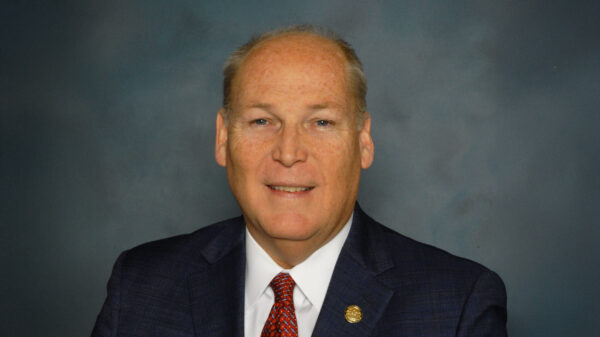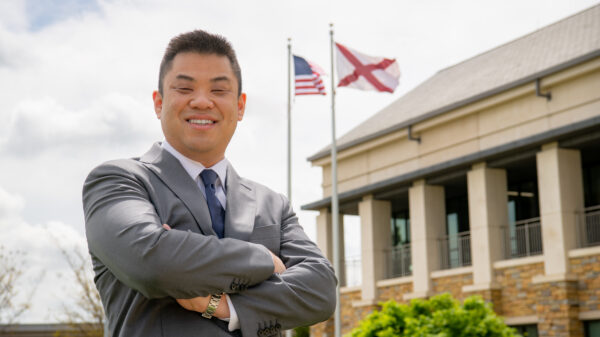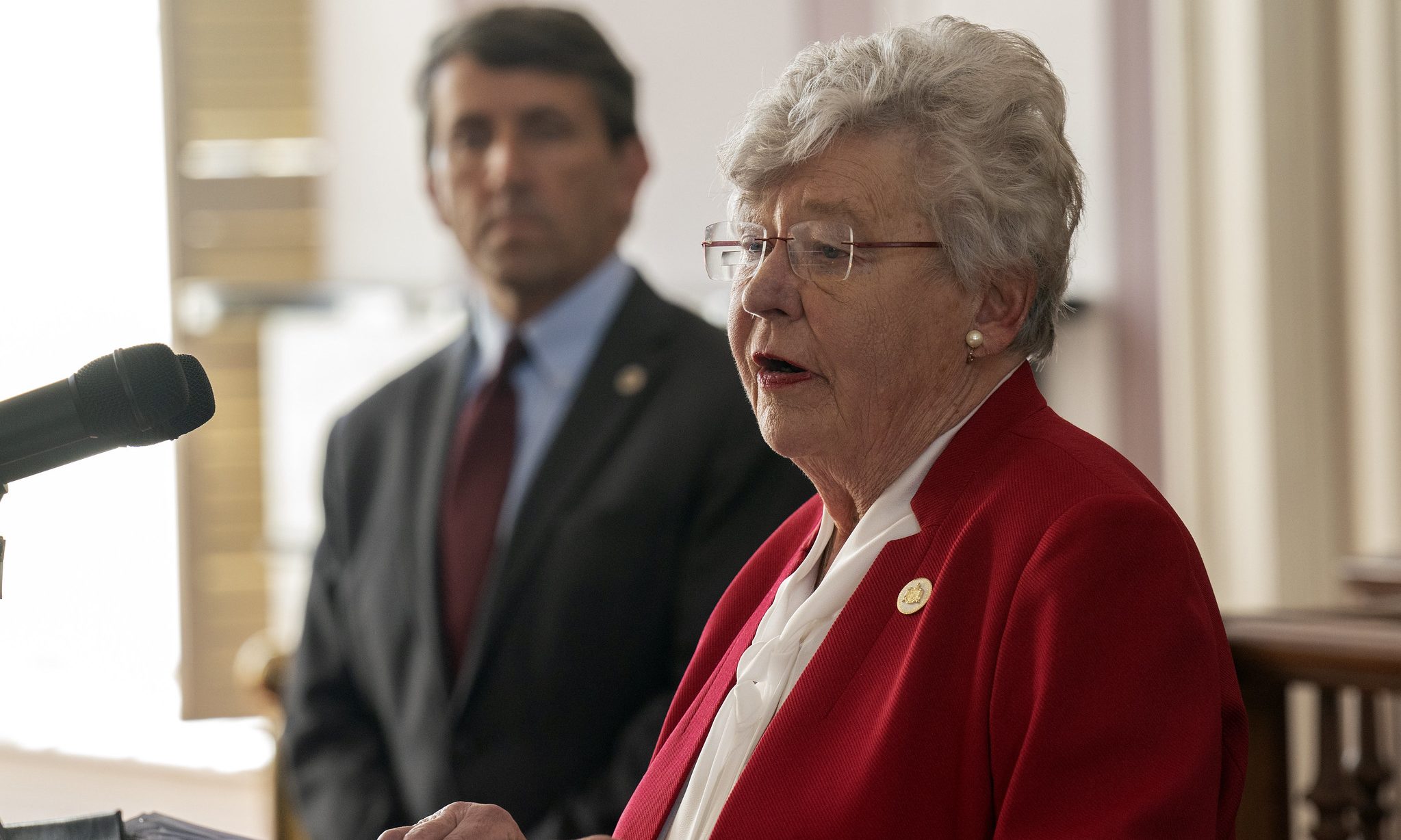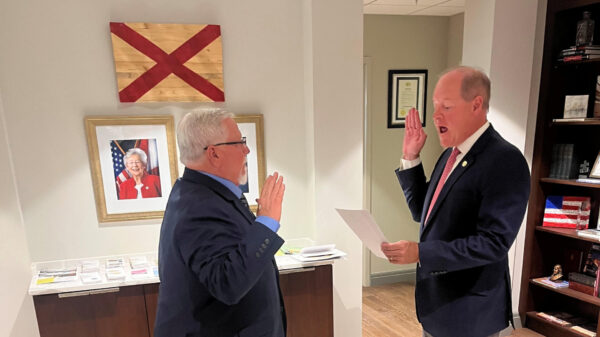Alabama Gov. Kay Ivey, on a conference call Monday, told legislators that she will announce her plan to reopen the economy. Ivey was joined by her chief of staff, former Congressman Joe Bonner; State Health Officer Dr. Scott Harris; State Finance Officer Kelly Butler; Labor Secretary Fitzgerald Washington; and Legislative Liaison William Filmore.
Ivey told the group that she is still finalizing her plan along with Harris, the Coronavirus Task Force and her staff after working over the weekend and last week to develop the plan. But the governor acknowledged to the lawmakers on the call that her guidelines will be controversial.
“Some will be thankful, others will say we went too far, some will say not far enough,” Ivey predicted. “There is no ideal plan.”
Ivey said that being flexible and working in a spirit of cooperation is important and encouraged legislators and leaders to continue to submit their opinions and feedback.
The governor will have a press conference Tuesday at 11 a.m. related to COVID-19.
“Alabama must protect the health and well-being of its citizens in the best way we can,” Ivey said.
Harris said as of Monday, the state of Alabama has just under 6,500 cases of COVID-19 and over 73,000 people have been tested. There have been 219 deaths.
The majority of the deaths are among senior citizens. Those who die of any age usually have chronic health problems such as heart disease, diabetes or chronic lung disease. Harris said that the state currently has no ventilator shortage and presently has an adequate number of ICU beds and hospital beds.
Harris said that the COVID-19 hotspots now are in Tallapoosa, Marshall and Mobile Counties. The Alabama Department of Public Health has sent additional testing to those sites. In Marshall County, the outbreak is centered around a poultry processing plant. In Tallapoosa County, it is a nursing home.
“The ability to increase testing is important,” Harris said.
The ADPH has reached out to 100 laboratories and measured their lab capacity. How many tests they are able to run.
“We have the ability to get to where we are based on lab capacity; however, it is unevenly distributed,” Harris said.
Jefferson County for example has more than adequate testing. Other counties still need more testing capacity.
“The challenge is how can we reach people to make it easy for folks to be tested?” Harris said. All federally qualified health care centers in the state have the ability to test. The health department also expected to work to expand testing through county health departments. Clinics are moving from county-to-county regularly.
Harris said ADPH needs increased contact-tracing ability. The ADPH has developed a contact tracing team. Medical students from Huntsville were recruited to be part of that team. The CDC has assigned public health professionals to all states to help with epidemiology.
Harris said that ADPH will continue to work through a unified command with state EMA and the Alabama National Guard as well as the departments of labor and commerce. The Alabama National Guard has done an exceptional job with missions, especially with disinfecting nursing homes.
Speaker of the House Mac McCutcheon, R-Monrovia, asked Harris to provide detail on flattening of the curve and how ADPH evaluates the numbers.
Harris said that the criteria they have been evaluating all along has to do with hospital capacity, deaths and the total numbers of cases. In the last few days, case numbers have plateaued but have no steady downward trajectory.
Harris attributed that success to social distancing.
“Alabamians have complied, for the most part,” Harris said.
Senate Majority Leader Greg Reed, R-Jasper, asked, “As Alabama has an opportunity to re-open, do we have statistical data related to those who have continued work during the Stay at Home Order?”
Examples are grocery store workers, Walmart workers. Have there been reviews of essential workers who have continued working? Have they contracted the virus?
Harris said that they do not have a study done on this group thus far.
“We do see that the overwhelming majority of cases in their forties and fifties are in the workforce,” Harris said. “We will do our best to get that information.”
State Finance Director Kelly Butler is the chairman of the Coronavirus Task Force.
Butler said that the taskforce was tasked with meeting and making recommendations to Ivey and Harris. The group met by telephone last week. The group also had one in-person meeting at Blue Cross Blue Shield headquarters in Birmingham.
Butler said that there are different opinions within the committee, but they are able to talk through and compromise.
Butler said that the committee looked at the White House guidelines, the Alabama Small Business Commission suggestions, Congressional delegation suggestions, legislator recommendations, business recommendations and individual recommendations.
Secretary of Labor Fitzgerald Washington said that he is proud of his staff’s responding to the enormous demands as more than 300,000 Alabamians have applied for unemployment over the last six weeks. The department is receiving many eligibility questions from employers and employees regarding the federal and state rules.
Washington said that Alabama was only one of twelve original states that administered the Pandemic Unemployment Assistance (PUA) program and was among the first five states to process payments under the $600 per week program.
Washington said that there were 4.4 million new jobless claims in the U.S. last week alone. The state has had 324,000 unemployment claims filed in the past six weeks. 55 percent of the total claims have been paid.
Washington explained that the Alabama Department of Labor still has to verify all claims. For example, an employee said she was fired because of COVID-19; however the employer stated she was terminated because her cash register allegedly kept coming up short.
The Attorney General’s Office will prosecute false COVID-19 claims.
ADOL will continue to improve efficiency related to claim filing.
The Alabama State legislature will go back to work on May 4 but will consider only the state budgets and legislator’s local bills. Everything else has been terminated for the remainder of the 2020 Legislative Session. According to reliable sources, the Legislature will sine die to end the session on May 8 — not May 18 as previously announced.



















































